Israeli captives return with smiles and goody bags, Palestinian abductees with scars
By Alireza Akbari
On Sunday, the Gaza-based resistance movement Hamas handed over three Israeli captives to the International Committee of the Red Cross (ICRC) in Gaza in a moment marked by an unusual scene—captives clutching goody bags and exchanging smiles with their captors.
As they stepped into ICRC vehicles, their faces lit up with smiles. The vehicles then sped away, carrying with them both captives and the exemplary goodwill of Hamas resistance fighters.
The handover unfolded against the backdrop of jubilant celebrations among Palestinians in Gaza, who took to the streets following the landmark ceasefire agreement.
The captives were gently transported in a white van, which met with an ICRC vehicle, which was waiting for their transfer to the occupied territories from the besieged Palestinian territory.
One of the captives, 28-year-old Emily Damary, was seen smiling at Hamas fighters as she exited the van and briefly reached out her hand toward them in a gesture that many said spoke volumes of humane treatment meted out to them in the captivity of the Gaza-based resistance movement.
Many underlined how Hamas fighters ensured the physical and psychological well-being of captives.
However, Western media outlets, echoing Israeli narratives, quickly dismissed the gesture as mere "propaganda," casting doubt on Hamas's intentions despite the public display of humane conduct.
Hamas fighters presented the Israeli captives with release certificates and gift bags. The gesture was described as a sign of “goodwill” toward those whose regime was responsible for the killing of 47,000 Palestinians, most of them children and women.
The three Israeli captives—Romy Jonin, 24, Emily Damary, 28, and Doron Shtanbar Khair, 31—were handed over to the ICRC as part of Phase 1 of the ceasefire agreement, which is a key component of the deal that came into effect on Sunday morning. The ceasefire is set to last for six weeks.
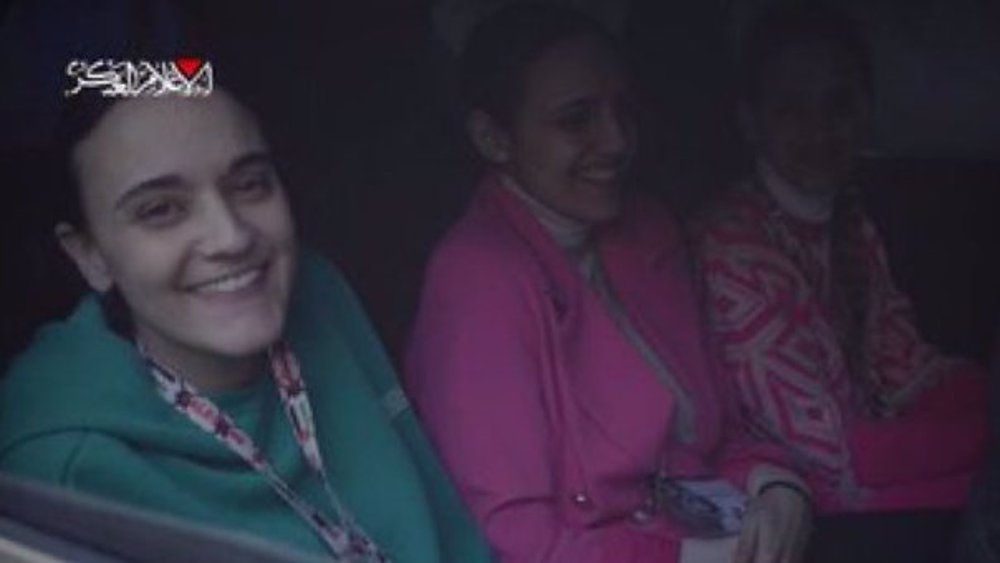
Under the terms of the deal, Hamas is set to release 33 Israeli captives, while Israel will in exchange free hundreds of Palestinians held illegally in Israeli jails.
The health of the three Israeli captives was confirmed by their families and doctors. Upon Damary's return home, her mother, Mandy said her condition was "better than we expected."
"She is the happiest woman in the world," she was quoted as saying by the Israeli media.
Later that day, Palestinians rejoiced as a pause in Israel's genocidal campaign in Gaza brought a sense of relief. To celebrate, they recited the Palestinian national anthem, waved flags, and gathered in the town of Beitunia, west of Ramallah, to warmly welcome their loved ones released from Israeli jails.
In the wee hours of Monday morning, a total of 90 Palestinian abductees were also set free by the Israeli occupation forces, many of them with visible injury marks on their faces.
Buses carrying them from the Israeli regime’s notorious Ofer Prison arrived in Beitunia, where their families and other Palestinians waited to receive them with warm embraces.
Heartfelt scenes unfolded—a mother hugging her daughter, a son kissing his mother’s hands, and a daughter crying in her father’s arms. Even the use of tear gas and rubber bullets by the occupation forces to foil the celebrations could not dampen their morale.
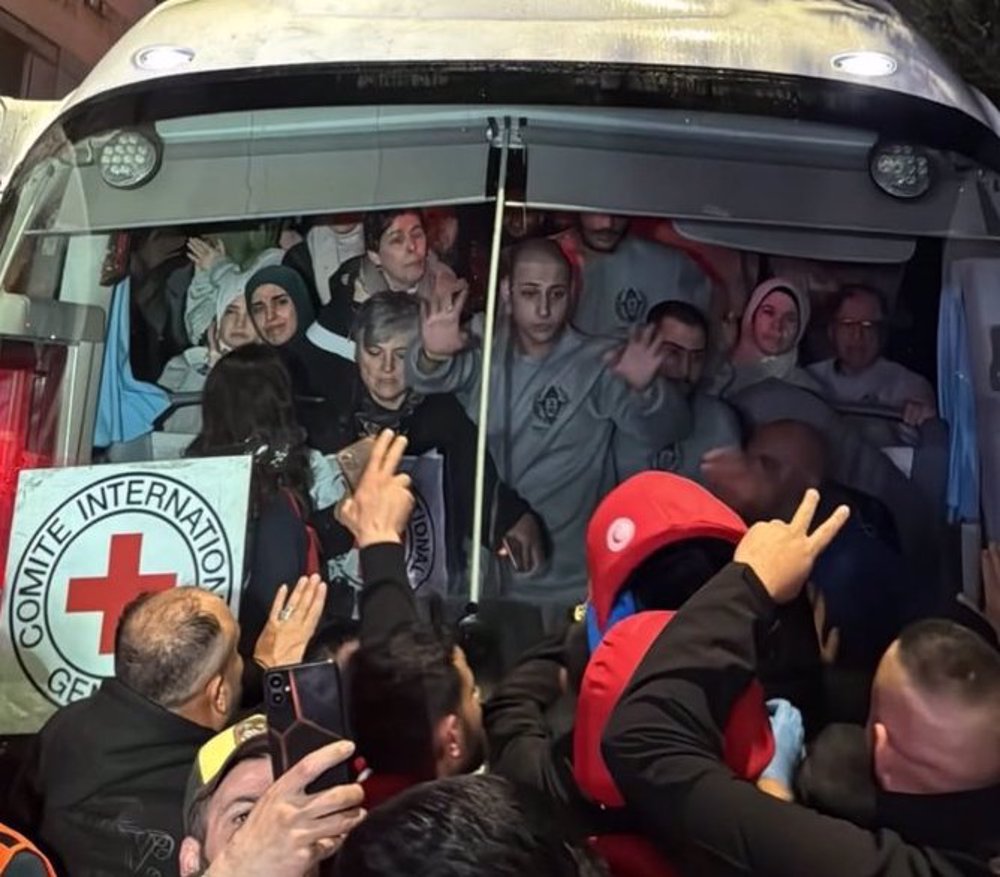
Social media was flooded with images and videos of the released Palestinian detainees, all of them framed under bogus charges. Many appeared with pale skin, white hair, and visible scratches on their faces—stark reminders of torture and the harsh conditions endured in Israeli prisons.
Citing the stark difference between the physical and psychological health of Israeli captives and Palestinian detainees, Hamas issued a statement on Monday underscoring the “contrast between the values and ethics of the resistance and the brutality and fascism of the occupation.”
Among the Palestinians released under the deal was 61-year-old Khalida Jarrar, an activist and lawmaker in the Palestinian Legislative Council for the Popular Front for the Liberation of Palestine (PFLP).
Barely able to walk, Jarrar was supported by people as she was greeted with cheers. However, her frail appearance—marked by white hair and a thin frame—drew widespread attention on social media.
Jarrar spent over six years in Israeli detention over the past decade, spread across five separate imprisonments, most of which were under so-called "administrative detention" without charge.
According to human rights organizations and her family, Jarrar endured solitary confinement in a cramped 2-by-1.5-meter cell during the last six months of her imprisonment.
Her lawyer described the inhumane conditions of her confinement as “a stifling cell equipped only with a concrete bench and a filthy toilet" adding that "the air was so scarce that Jarrar was forced to lie on the floor to breathe through a crack between the door and the floor.”
Additionally, the Palestinian political activist suffered from multiple health issues, including deep vein thrombosis and diabetes, which further compounded her hardships in detention.
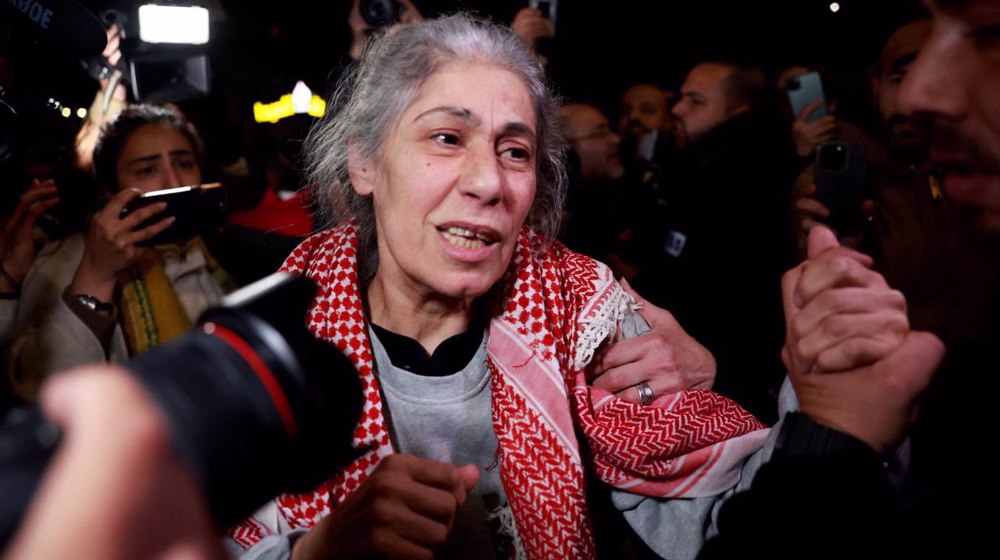
She was re-arrested in December 2023 on unsubstantiated accusations of “support for terrorism,” according to Israeli authorities, and was held without charge under administrative detention.
Neve Tirza, the women’s prison in Ramla where Jarrar was held, has been the focus of numerous investigations exposing its severe overcrowding, frequent use of solitary confinement, and cramped cells that provide each prisoner with only two meters of personal space.
In 2021, Jarrar was sentenced to two years in prison for “membership in an unlawful association.”
Notably, the Israeli military court acknowledged that she had no involvement in the organization’s “organizational or military aspects.” Human rights groups strongly condemned her conviction at the time, describing it as a violation of her right to freedom of association.
During her imprisonment, Jarrar endured profound personal losses, including the deaths of her 31-year-old daughter, Suha, as well as her mother, father, and nephew, Wadia.
The tragedy Jarrar endured during her years behind bars reflects the broader suffering experienced by nearly all Palestinian detainees who are held illegally in various notorious Israeli prisons.
Shatha Jarabaa, 24, a biology and biochemistry major at Birzeit University, was another Palestinian detainee released under the deal on Monday morning. She had been arrested for a social media post criticizing the Israeli military’s “brutality” during its genocidal campaign in Gaza.
“I’m very happy! Thank God I’m outside. They treated me very badly in prison. It was horrible,” she said, speaking to a cheering crowd celebrating the release of Palestinian detainees.
The Zionist regime’s illegitimate court had deliberately postponed Jarabaa’s hearing to November 7, 2024. She was violently abducted on August 18, along with her brother Abdul Rahman.
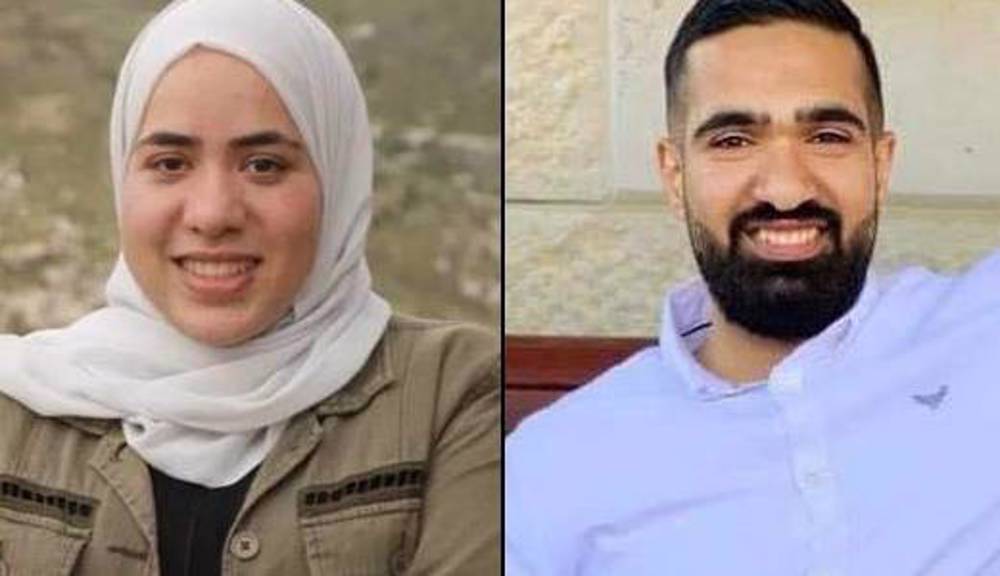
A worker at the Palestinian Red Crescent Society Margaret Al-Ra'i was among the Palestinian detainees released with visible physical injuries. Activists on social media pointed to her broken hand, viciously fractured during a brutal assault in an Israeli prison.
Following her re-arrest in November 2024, an Israeli court sentenced her to six months of administrative detention—a lawless and arbitrary measure subject to renewal.
In a video that went viral on X (formerly Twitter), Latifa Mshasha, another released Palestinian detainee, described the harrowing conditions endured by Palestinian prisoners in Israeli custody.
“They left us on the ground for about two hours with dogs. We were freezing during that time. It was oppressive being on the ground. They spoke to us harshly. Dogs surrounded us. We didn’t know where we’d end up. We try to forget and endure. Praise be to God,” she said.
Jenin Amr, 22, who spent 14 months in an Israeli prison, was also among those released during the first phase of the ceasefire deal reached between the two sides.
Upon her return, she recounted the grim conditions inside the prison, stating, “There were no elements of life—no proper food, no adequate covers, only repression and beatings. We are deeply grateful to the people of Gaza for their patience and honor those who were killed.”
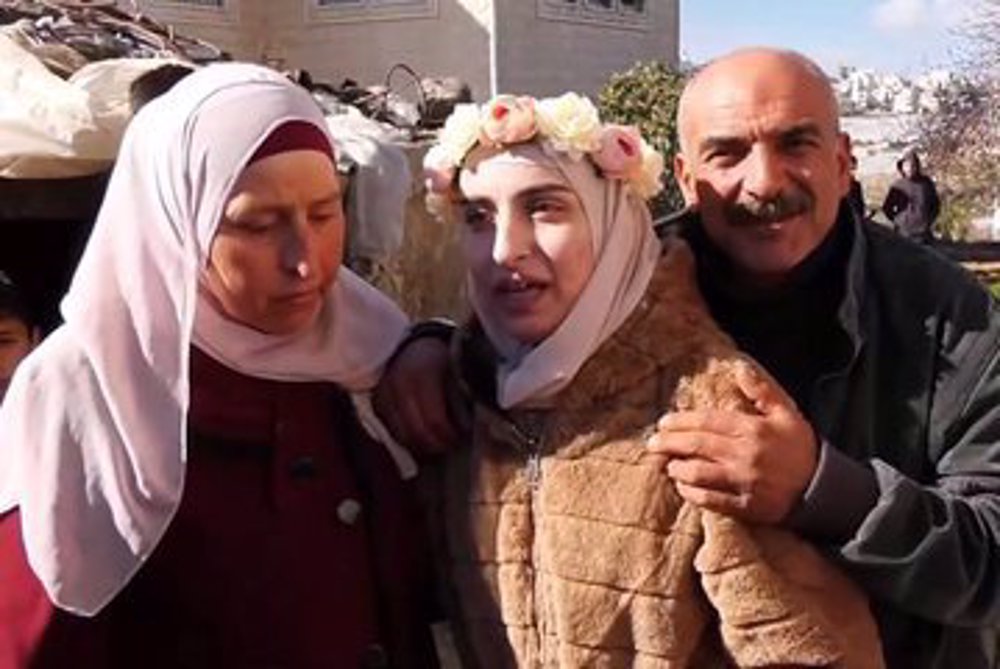
Amal Shuja’iya, a freed Palestinian detainee, recounted her ordeal following her arrest and subsequent release. “We were subjected to oppression and abuse,” she said.
In an emotional reunion, Dunya Ishteyeh embraced her mother and both were overcome with tears. Reflecting on her time in Israeli custody, Ishteyeh shared, “Oh no, Mom, I can’t believe it. It’s impossible! Praise be to God. I was dying. They were killing me.”
Baraa Fuqahaa, 23, also revealed the harsh realities of life in Israeli prisons. “The condition was extremely difficult. Everyone had heard of the restrictions and oppression we faced,” she said.
Fuqahaa also described being confined to a room for 23 hours a day, and sometimes even 24 hours.
“Whenever any issue arose, they would lock down the section, even preventing us from going to the yard. At those times, we were confined to the cells for 24 hours,” she noted.
She added that restrictions extended to all aspects of life, from medical care and treatment to food and other basic needs.
Hanan Malwani, 23, echoed similar accounts. “I have been imprisoned for five months under arrest, not yet sentenced. They wouldn’t allow all the girls to go out at once. They would leave one or two girls in the room to make things difficult for us. I was one of the girls who stayed in the room,” she said.
Another released detainee, Rose Khweis, highlighted the lack of medical care in Israeli prisons for Palestinian detainees. “The prison conditions were terrible. Our health situation was really bad. They didn’t give us proper medical care,” Khweis said.
Ayham Jaradat, from the town of Sa'ir, north of Al-Khalil, was another released detainee who received a tearful welcome from his family on Sunday night. He said, “May every captive taste freedom. The pain they (Palestinian detainees) face—beatings, torture, and oppression—must never be forgotten.”
Reports indicated that 22 of the 90 Palestinian detainees released from Israeli military prisons on Sunday were children, many of whom had been held in administrative detention without charge or trial.
One of them, Aseel Shadeh, a 17-year-old Palestinian girl, was abducted on November 7, 2023, during a protest against the killing of Palestinian children in Gaza. She was waving a Palestinian flag when Israeli soldiers shot her in the foot, handcuffed her, and accused her of attempting to stab them.
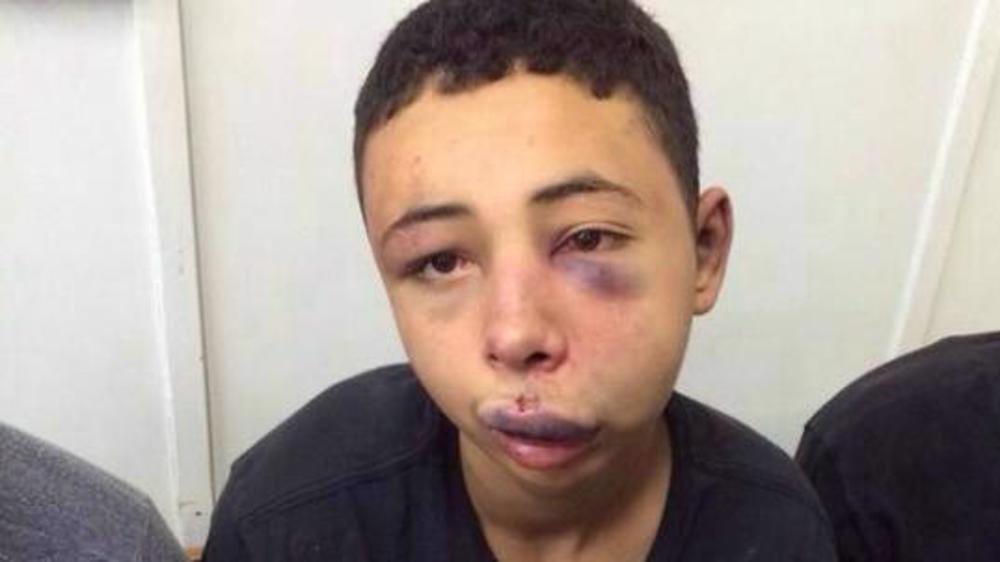
Gazan writer and analyst Muhammad Shehada also shared an image of Tariq Abu Khdeir, an American-Palestinian child, on his X account and wrote that Khdeir was “kidnapped, beaten unconscious, detained, and fined for the crime of being Palestinian.”
“Israel wants you to believe this kid is a mass murderer, terrorist, rapist, genocidal maniac, barbaric monster... Anything but a hostage! Only their uniformed IDF soldiers are considered hostages," he wrote.
He also shared videos of Palestinians being humiliated by Israeli soldiers during the war on Gaza.
“It became a TikTok challenge during the genocide for Israeli soldiers to kidnap Palestinians, torture and humiliate them, and force them on camera to wave the Israeli flag or sing Israel's national anthem.”
The dire situation of the Palestinian captives after their release, along with their accounts of the horrible conditions they endured in Israeli jails have made their families live with constant worry, longing for their loved ones' freedom.
While some families have been reunited, others continue to wait for the return of their loved ones.
Among them are the families of prisoners like Taleb Amr, 62, who has been imprisoned for 24 years, serving seven life sentences, and Mohammad Nabil Al-Arkan from Hebron, who has spent 30 years in Israeli prisons and is battling liver cancer, facing severe health challenges.
Activists have also blamed the Israeli regime for the horrendous atrocities committed against Palestinian detainees, comparing the Zionist entity’s brutality against Palestinians to the kind behavior of Hamas resistance fighters towards the Israeli captives released on Sunday.
In an attempt to whitewash Israeli brutality against Palestinians, some Western media outlets followed the footsteps of Israeli media outlets and portrayed the condition of the released Palestinian abductees and the Israeli captives in a way that didn’t sit well with activists.
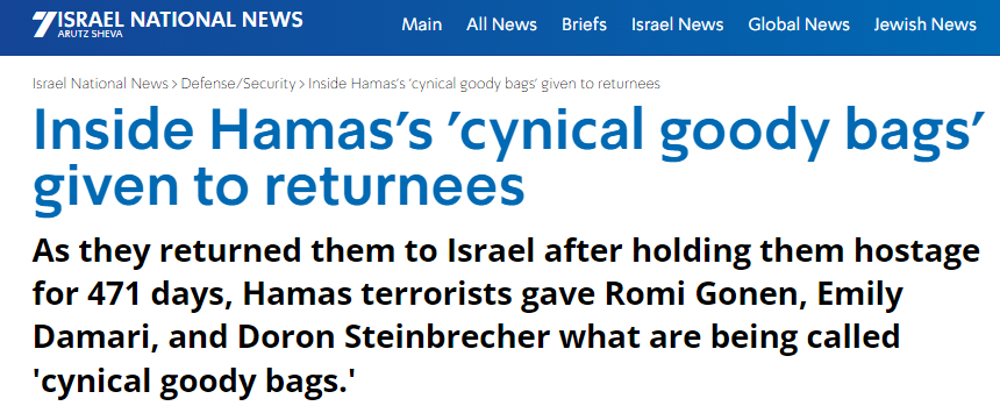
The Israeli daily, The Times of Israel, titled its January 20 story as “Hamas forces parting gift bags on freed hostages as mementos of hellish captivity.”
The daily also labeled the presentation of gift bags by Hamas to the Israeli captives as “propaganda,” while activists described the coverage as a biased narration of Hamas goodwill.
Similarly, the Israeli regime media network, Israel National News, headlined its January 19 story as “Inside Hamas's cynical goody bags given to returnees.”
Some US media outlets also followed the same narrative. The American daily, the New York Post, highlighted the goody bags presented by Hamas to the Israeli captives under a headline titled “Freed Israeli hostages given gift bags by Hamas in horrific commemoration of their captivity” on Sunday.
According to media analysts, the media outlet, in an attempt to downplay Hamas's move, labeled the goody bags as “bizarre,” adding that Hamas released “an equally strange propaganda video.”
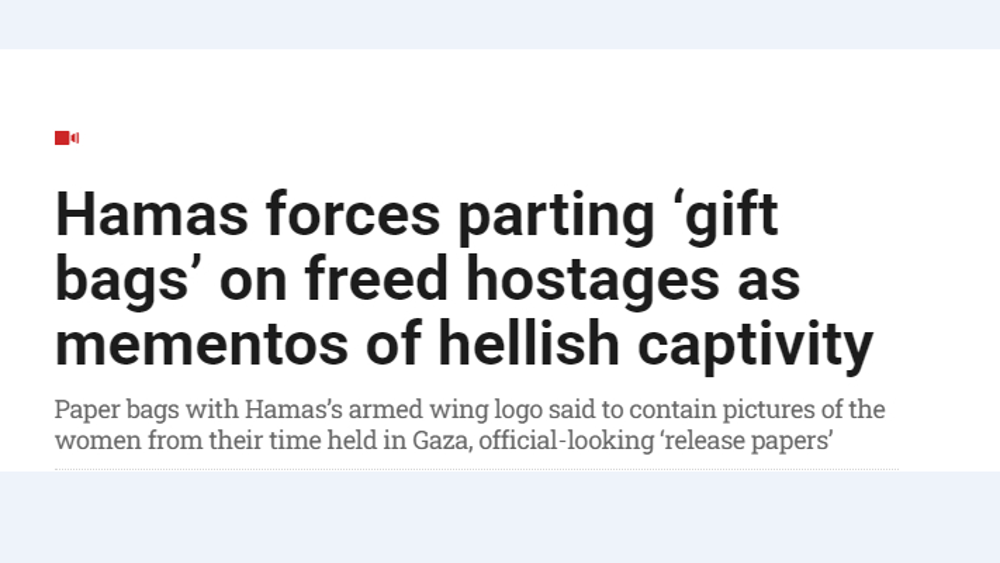
American broadcaster CNN titled its January 20 story as “Hamas gave the three hostages gift bags upon their release. This is what was inside.”
“When Hamas’ military wing, the Qassam Brigades, released its propaganda video of three Israeli hostages being released Sunday night, there was a striking detail," read the story.
Following the “biased” coverage of the event, activists on social media referenced the physical health of the Israeli captives and noted that “the body does not lie.”
They also referred to the tarnishing of Hamas goodwill by some media outlets, which labeled the goody bags as “psychological torture” and reiterated that psychological torture is not something one can fake.
UNRWA: Israel's West Bank aggression aligns with annexation 'vision'
VIDEO | Destruction of Barquq Castle in Khan Younis
VIDEO | Gaza ceasefire has stalled, and Trump's warnings
Syrian regime declares curfews in several regions
Sudan takes UAE to UN court over 'complicity in genocide'
Trump's threats will embolden Israel to ignore ceasefire: Hamas
Hamas ready for 'all possibilities' after 'last warning' by Trump
Iran elected vice president of OPCW panel despite US opposition


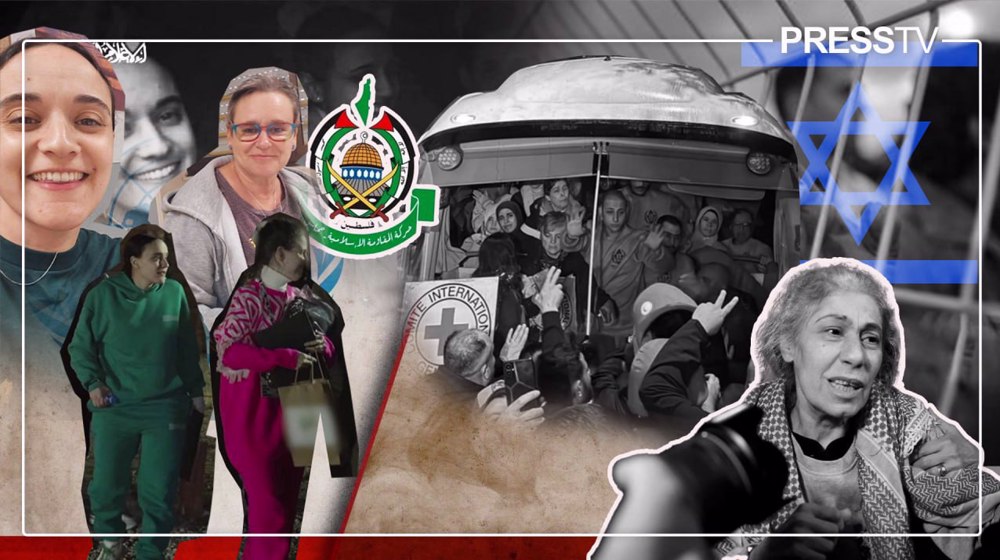
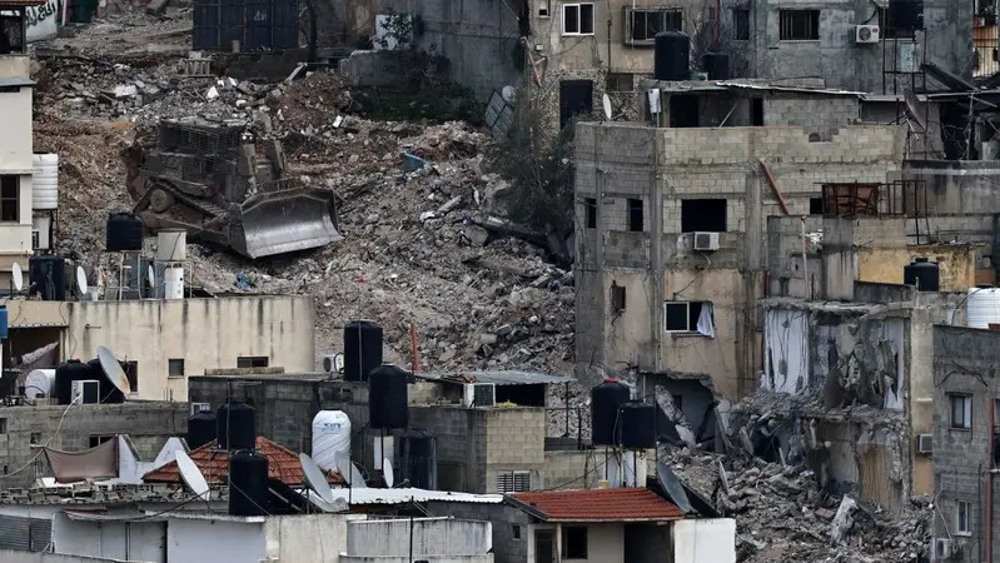
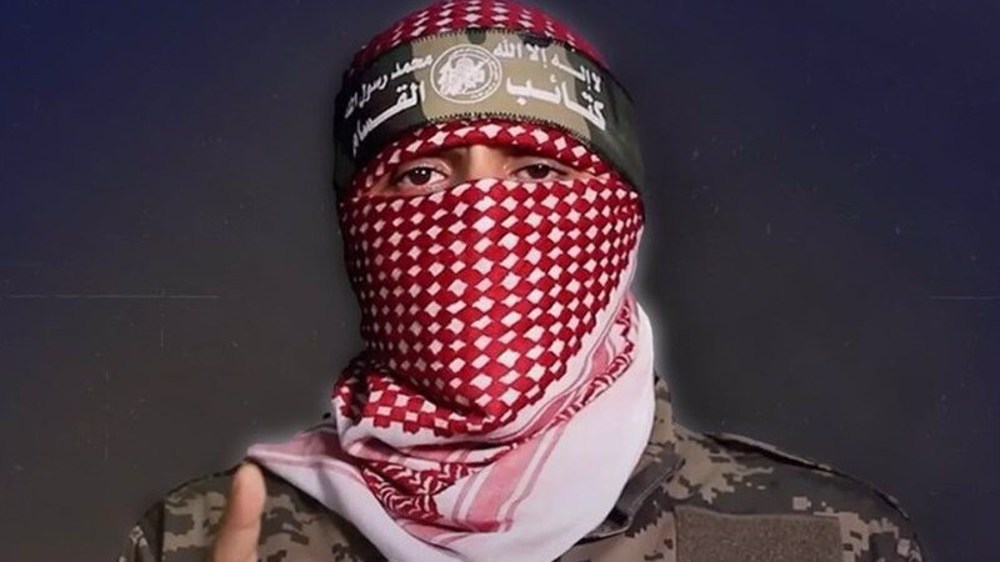
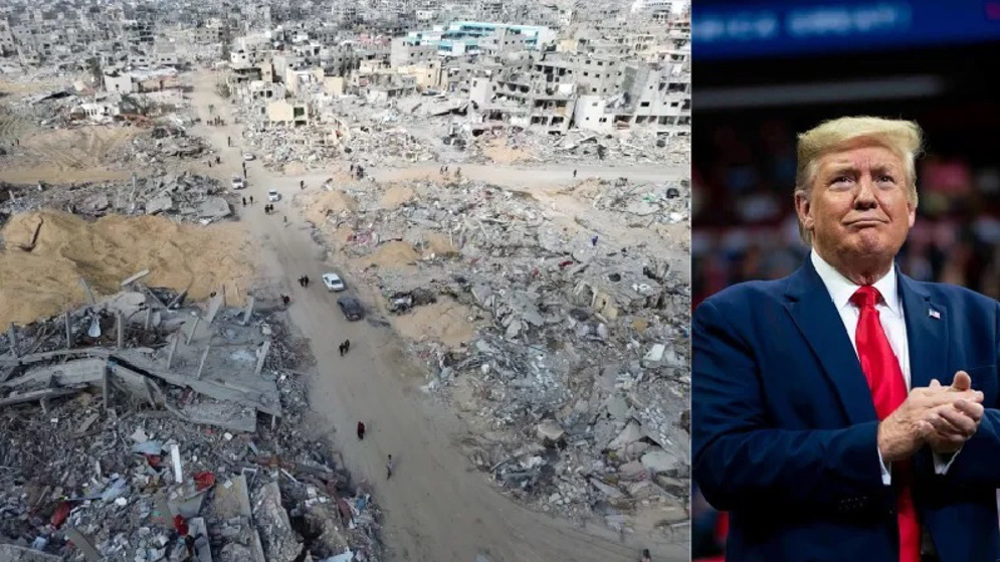



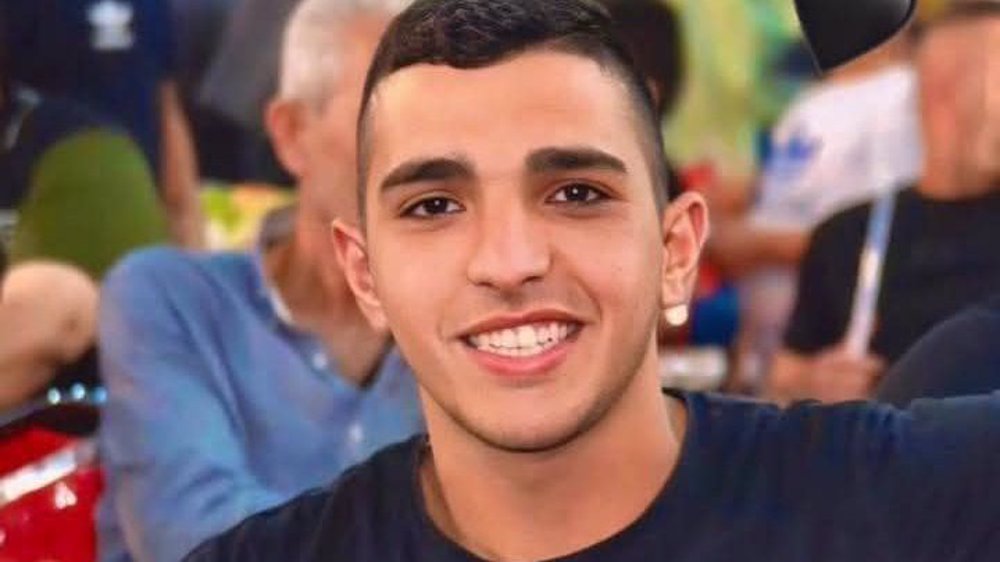
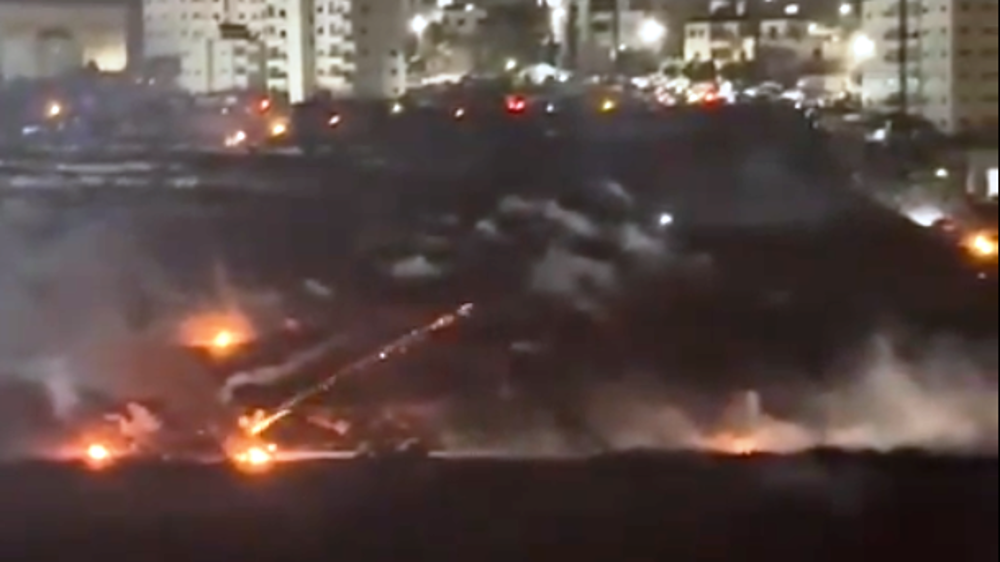
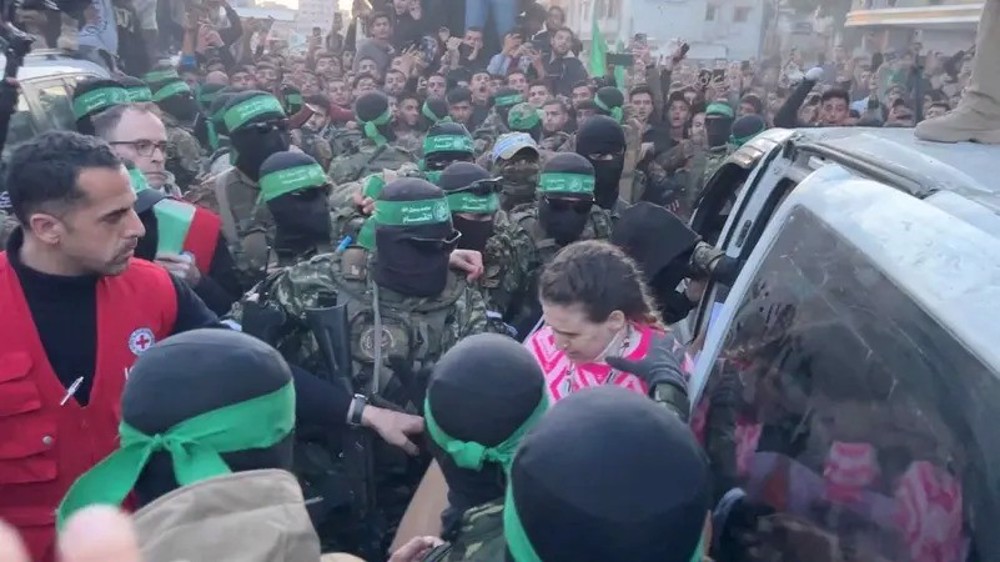
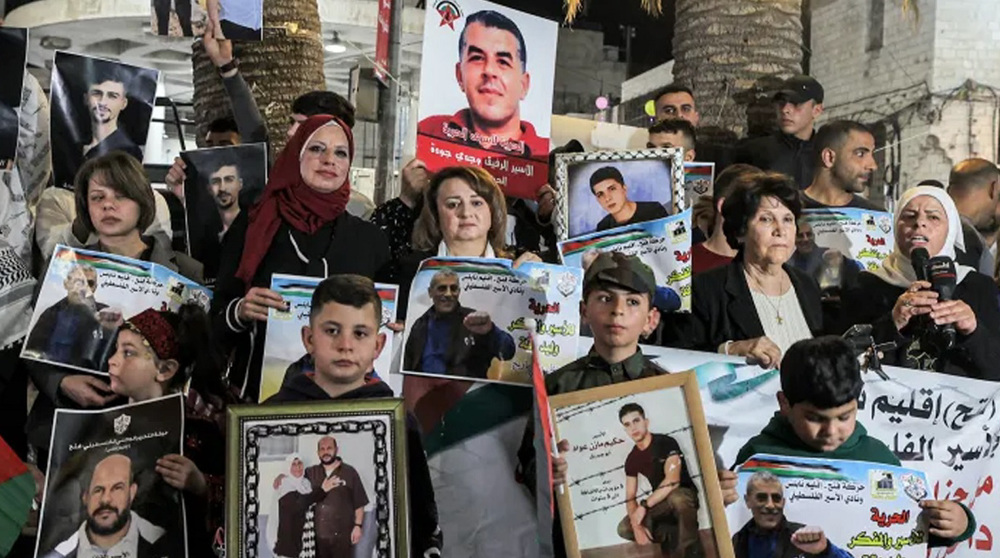
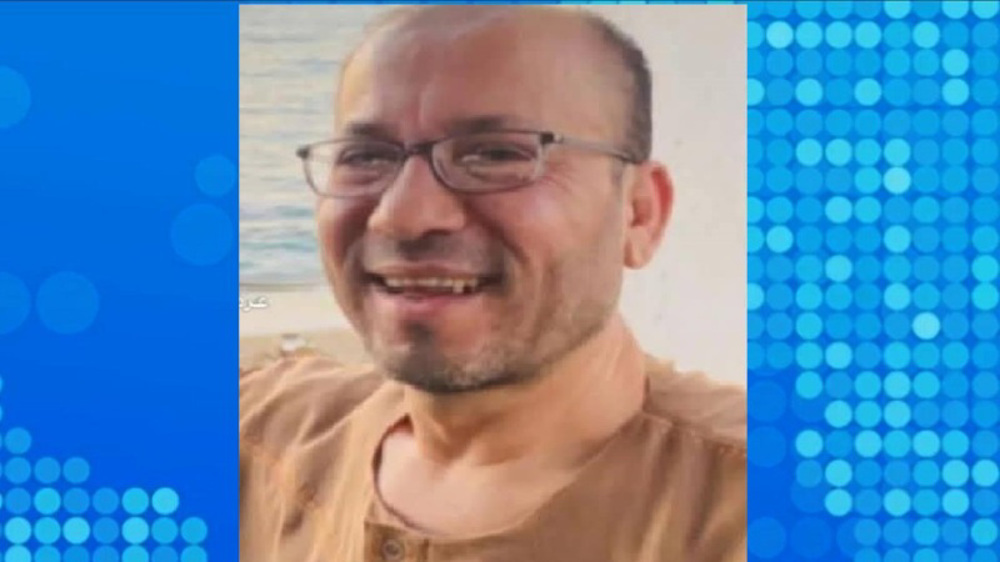

 This makes it easy to access the Press TV website
This makes it easy to access the Press TV website